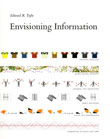On the Job
My grandfather was a carpenter. He built many houses, including his and my grandmother’s, and my family’s home. He always had a pickup truck because that was his means to signal to the world that he was in business. Even after he had retired, he insisted on having a pickup truck so that he would always have the option to work if he needed it. That was a door he never wanted to close.
His friends and coworkers would meet at a local diner every morning for breakfast and to have a few laughs. I remember passing the diner on my morning school bus ride and seeing his and his friends’ pickup trucks lined up in the parking lot. They all had trucks too because this was how they told the world, and one another, that they were working.
I admire my grandfather for a great many things, but most for teaching me about craft and good day’s work. He could swing a hammer and liked making things with his hands, and until the end, wanted to be perceived as someone who could so. That was essential to him because he identified himself by the things he made.
And he made good on that. After retirement, he built a few more houses, including my family’s. He let me help with that one, and though I was only six, I tell myself the tangle of boards I nailed together in an adjacent pile of dirt were totally load-bearing. He taught me how to swing a hammer and how important it was to level your work and measure twice.
His truck, his hammer, his group of friends, all meant he was on the job. And most importantly, that he always had the potential to make something.
This piece originally appeared on The Pastry Box Project.





 Envisioning Information
Envisioning Information
